https://www.linkedin.com/in/yarabsaibes/
Yara Paradis Bsaibes is a Lebanese Clinical Psychologist, psychotherapist based in Paris.
She received a Professional Master’s degree in Professional Psychology and Psychopathology from Saint-Joseph University in Beirut on the subject of «La representation de l’image du corps chez le schizophrène. Ebauche d’un lien qui se retisse à travers les épreuves projectives : dessins et T.A.T.».
She got her Research Professional Master’s degree in Psychoanalysis and Interdisciplinarity from Paris-Diderot University on “Crime et Châtiment : Le parricide et son traitement carcéral dans la société libanaise ».
Actually she is following a training in family and group therapy at Société de thérapie familiale psychanalytique d’Ile-de-France (STFPIF) in Paris.
She is recognized as a psychologist and psychotherapist by the regional health agency in France (ARS).
Her diploma and her professional experience in psychology departments in several institutions in Lebanon (Educational institutions and in Lebanese prisons) and France (Aurore association and child protection) helped her develop her skills in:
- Conducting research regarding psychic disorders such as generalized depression, bipolar disorder, schizophrenia and criminal behavior,
- Guiding preliminary interviews,
- Realizing supportive therapies,
- Creating and leading discussion groups (subjects: domestic violence and emotional education),
- Writing individual reports,
- Developing specific programs for children with autism spectrum disorder,
- Writing psychometric assessments,
- Collaborating with multidisciplinary teams and partnerships.
Mrs. Paradis was invited to speak at a conference entitled “Psychoanalysis, Culture and Society » at Middlesex University in London to present her work as psychologist in Lebanese prisons.
She participated in TV interviews in which she talked about several psychological topics such as domestic violence, child abuse and criminal behavior.
She collaborated in newspaper’s publications with journalists in Lebanon :
- Y. Bsaibes and T. Ghazal, Are today’s crimes related to mental health?, published in Ad Diyar, Lebanon, 2015.
- Y. Bsaibes and T. Ghazal, What’s the importance of mental treatment and follow up of the convicted drug addict, published in Ad Diyar, Lebanon, 2016.
- Y. Bsaibes and G. Saad, What is the relation between the unsocial personality and criminal behavior, published in The Justice and Mercy Association’s site, Lebanon, 2016.
We interviewed her talking about her professional career in order to raise awareness about the importance of Mental Health.
What are the important turning points in your life?
Every step in my life was a turning point but I think the most significant step was my decision to come to Paris for new adventures.
I decided to leave my lovely country, Lebanon, in 2016, to develop my skills and to get closer to the thinking of the pioneers of psychology such as Freud, Lacan, Winnicott, Dolto, Klein, Eiguer and co.
Psychology is a discipline that fascinates me, and makes it possible to analyze the behaviors, the psyche and the feelings of any individual.
What is your current state of mind?
Getting my PhD specialized in family and group therapy. It is After my master’s research in «Psychoanalyse et interdisciplinarité» at Paris-Diderot University, and starting my training in family and group therapy in «Société de thérapie familiale psychanalytique d’ile-de France » in Paris that I made this decision.
How have patients’ non-verbal communication helped you to make psychological assessment?
Freud’s (the father of psychoanalysis) all first patients suffered from paralysis, blindness, and unbearable pain.
Certainly, patients express themselves with words and with gestures too, especially when they have difficulty to express their emotions and thoughts verbally.
Psychologist’s body observation (such as the look, the smile, the sitting position, the movement of the hands and feet) and the patient’s somatic complaints (such as difficulty sleeping, loss of appetite, headaches, and nightmares) are important in psychological assessment.
The role of the psychologist is to go even more deeply in his analysis observing body language, speech, and definitely running psychometric tests based on recommendations to make a complete psychological assessment.
How does mental health affect body image?
The image of the human body means the representation of our own body which we form in our mind, the way in which the body appears to ourselves. There is certainly link between body image and mental disorder. Mental health issues can exacerbate negative body image; health issues such as depression, trauma, and mood disorder can affect how you feel about yourself.
We observe often a problem in body image for exemple in children with developmental disorders (ASD; Autism Spectrum Disorders), people with eating disorders (Anorexia), people with psychotics disorders such as schizophrenia and dementia in the elderly.
One of the roles of the psychologist is to study and analyze how the body image is affected through general observation, personal and family history, verbal and non-verbal speech, drawings and playing especially in children, questionnaires and psychometric tests. This will help the professional to develop the multidisciplinary care.
What is the best thing about being a Clinical Psychologist, Psychotherapist?
The best thing about being a clinical psychologist and Psychotherapist is that it continually enriches the human side and develops the ability to not judge others. We are gradually working on our own growth which also influences the growth of our patients. We cannot take the patient to an advanced stage in their life without having gone through that path ourselves.
What do you consider your greatest achievement?
As a Lebanese psychologist, my greatest achievement so far is my ability to work with multicultural colleagues and patients who come from all over the world such as Morocco, Algeria, Mali, Guinea, Haiti, Congo. I was able to adapt and make a big progress in my perception of mental health thanks to my skills acquired in Lebanon diversified cultures.
How would you define a successful Clinical Psychologist?
A successful psychologist should be able to question himself permanently to evolve. He should be a good listener, have an excellent problem-solving skills, communication skills, scientific curiosity, empathy, patience and an interest in healthcare. Participating in colloquia and seminars is essential for the psychologist in order gain updated knowledge and certainly being supervised by a professional is essential.
Which are the most common disorders you have treated, and how have you approached these?
I mostly worked with people in very precarious situations (Detainees, homeless person, refugees, unaccompanied minors, children in danger). These people have often gone through traumatic events (physical and psychological violence, bullying, divorce, death and war) in their lives that lead in some case to many mental disorders such as depression, anxiety disorders, bipolar disorder, post-traumatic stress disorder (PTSD), schizophrenia.
Each disorder has its own symptoms and is treated differently.
Your Role models (any field)?
All feminists who fought for women’s rights such as May Ziadeh, the Lebanese Palestinian writer and translator, her legacy as an Arab feminist continues to inspire many today.
The Lebanese novelist Emily Nasrallah and the Egyptian feminist writer Nawal el-Saadawi who was called “Simone de Beauvoir du monde Arabe”.
Olympe de Gouges, the first woman to declare women’s rights after the French Revolution and Simone Veil who has championed the cause of women all over the world.
As a clinical psychologist, I think there are still many questions to resolve concerning the issue of women’s right around the world especially in the Middle East.
How can we help a family member with mental illness?
The mental illness of a family member can create dysfunction in the family dynamic, family tensions, troubled emotions and big changes in the way members live their lives.
Different family members can be affected in different ways.
The important thing is to have the courage to consult a professional who can help people to work on their difficulties and to move forward in life.
It is essential to communicate in an authenticable way and to be up to what is said in order to not lose his/her confidence.
We could help the member with the disease by using reassuring sentences:
1. “I understand you” instead of saying “Stop acting like this”,
2. “It’s not easy” instead of saying “Don’t worry”,
3. “If you need to speak, I’m here to listen to you at all times and help you to consult a professional” instead of saying “Therapy is for the foolish and the weak”,
4. “Take your time without pressure” instead of saying “Make an effort, things will be better tomorrow”,
5. “I love you unconditionally, no matter what you say or do” instead of saying “Pay attention of your words and your behaviors”.
Define Art?
Everyone is creative depending on his perception of his reality.
Art is unlimited; we find it everywhere in nature, in music, in paint, in writing, in therapy, etc.
What is your ultimate dislike?
Injustice in the world.
What is your favorite occupation?
Piano and learning.
What you wish for all the time?
Health.
What do you expect from the future?
Finding solutions to respect the resources provided by nature, nature is essential for the survival of mankind.
What things in life are still mysteries to you?
Life itself.
You pick Freedom or Security?
Freedom, I am ready to lose a temporary security.
An advice for others ?
As Baruch Spinoza said “I have striven not to laugh at human actions, not to weep at them, nor to hate them, but to understand them.”
#psychology #psychotherapy #yaraparadis #clinicalpsychologist #thepatwalk #lebanese #magazine #interview باتواك# مجلة # لبنانية# مقابلة# علوم_نفسية# #صحة #صحةعقلية


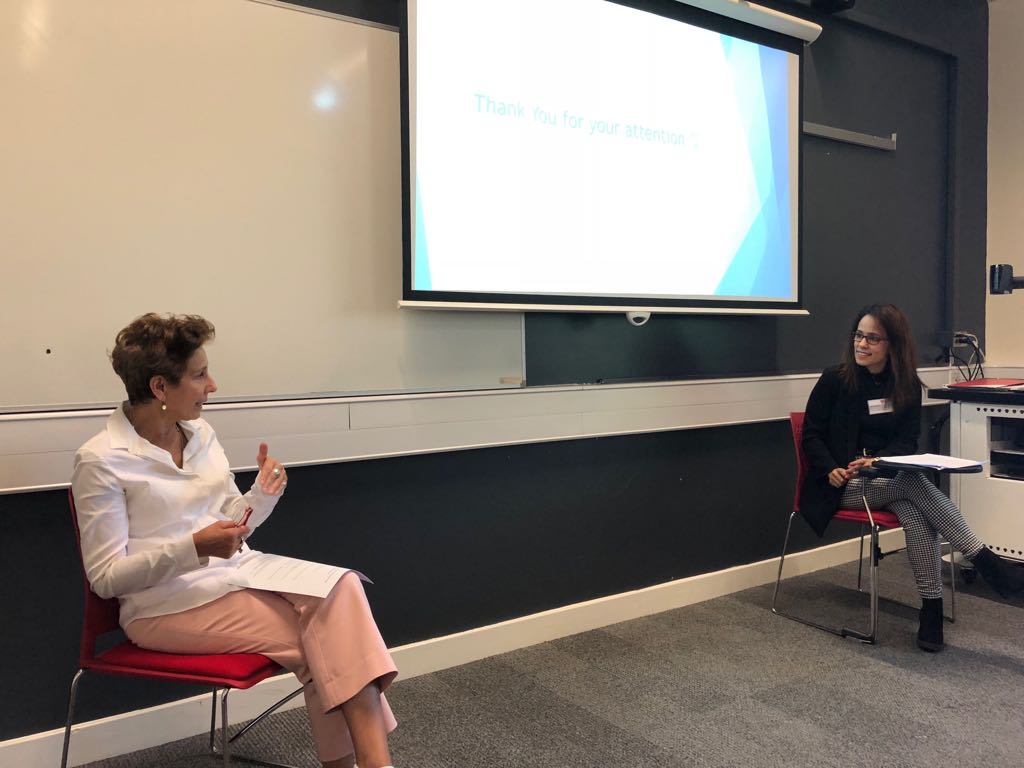
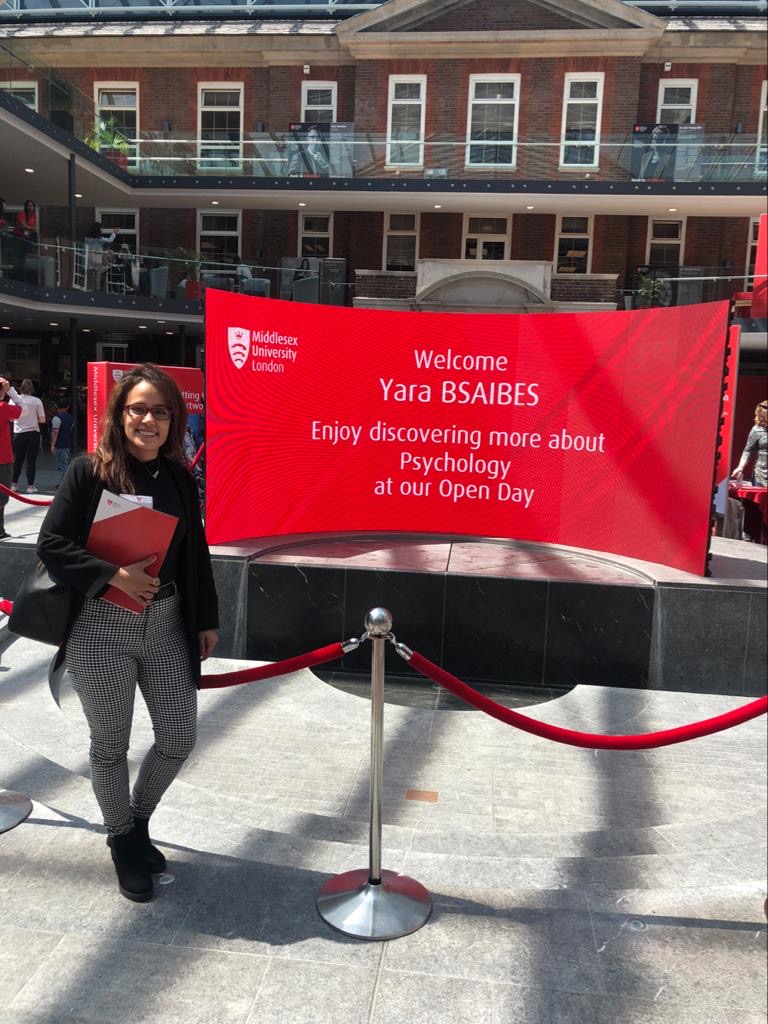


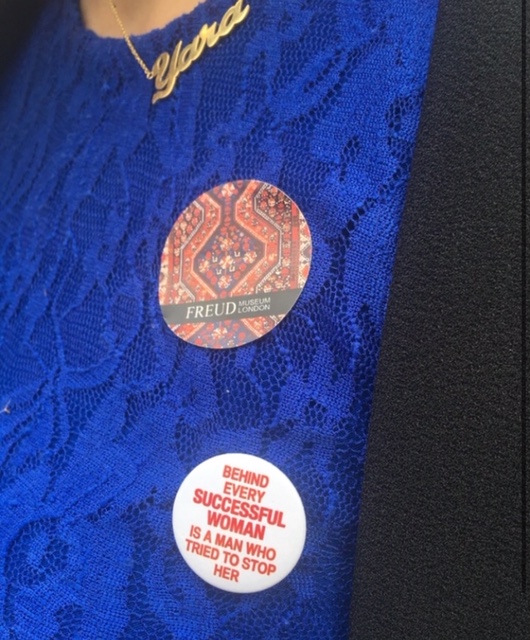
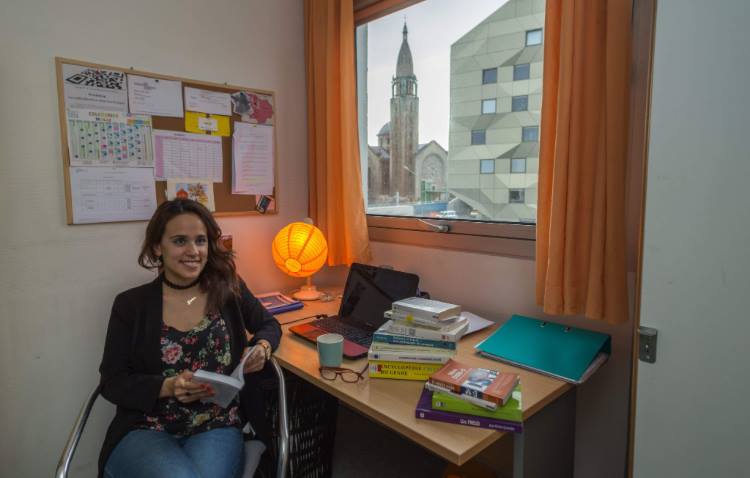
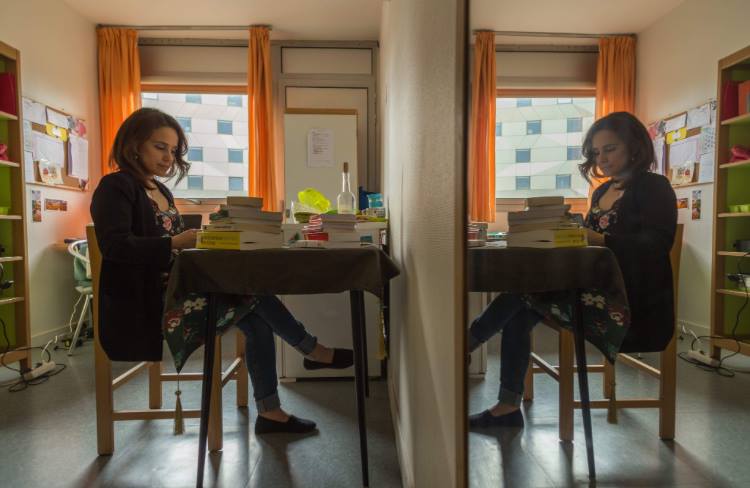

0 Comments